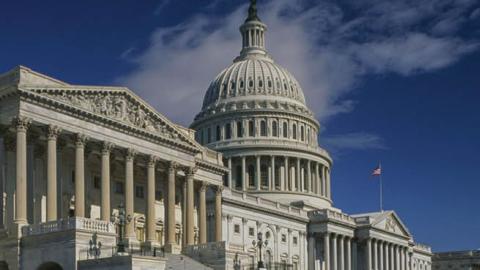Earlier in Providence, I ventured into the now sprawling, ongoing liberalism-populism-nationalism debates, particularly in response to Robert Kagan’s large but very weak Washington Post foray.
My principal goal was to show that the word liberalism has many and diverse meanings. Much of Kagan’s argument stemmed from his confusing these different definitions, or at least from his assumption that they have a close connection with each other.
As I noted then, five current common meanings of liberalism are:
1. A body of modern political thought, primarily individualist, that includes figures such as John Locke and John Stuart Mill.
2. The non-socialist American left.
3. The market-oriented European right.
4. A particular trend in American political thought in the last five decades associated with figures such as John Rawls, Ronald Dworkin, and Richard Rorty, as distinct from communitarian philosophers such as Michael Sandel, Michael Walzer, and Charles Taylor.
5. Democratic, constitutional, rule-of-law regimes that protect human rights, as in the phrase liberal democracies.
Kagan appears to assume anybody who is skeptical of liberalism in the senses of 1 through 4 is necessarily someone who rejects 5. He does not argue for this position; he merely assumes and asserts it. He does so again in a later piece, “Israel and the decline of the liberal order,” focused particularly on Israel and liberalism.
This confounding of contentious liberal theories with actual concrete polities stems from the assumption that liberal democratic states are somehow the product of liberal theories. But generally they are not, or at least only partially so. This confusion needs to be untangled if we are to have any clarity in the ongoing liberalism-populism-nationalism debates.
Happily, in an excellent National Affairs essay, “Liberal Practice v. Liberal Theory,” Daniel E. Burns does much to clarify these matters. Let me strain the limits of plagiarism by quoting liberally to summarize Burns’ arguments. Words in ellipses are quotes from him.
At the outset he provides the necessary caution that “ideas, of course, have consequences.” But he then adds the equally necessary qualification that “politics is always so full of bad ideas that it is hard to predict which ones will have what consequences.” For example, we see now the depredations of intersectional theory in American society, but such ideology would likely have had little traction in, say, the 1950s. His key theme is that, as “Aristotle tried to warn us,” politics “is not subject to universal formulas and deductive syllogisms in the manner of mathematics or physics.”
He then describes the quasi-religious, semi-Hegelian impulses driving so many current debates, which give them their underlying assumptions and also their passion and occasional hysteria: “As Tocqueville warned us, Americans have a special penchant for fitting complicated data into a single time-saving theory, especially when it is a theory about the irresistible direction of history.” Hence, for many American pundits reflecting on recent US presidential elections and similar exercises elsewhere, “the year 2016 has become associated with the question of whether the World Spirit might now be spurning the charms of his longtime paramour Liberalism. A few hope it may be so. Many more fear it could be so.”
These attacks and these defenses “share a common error. Both accept liberal theory’s false claim to be the authoritative interpreter of liberal practice.”
However, the core of liberal theory, “the claim that human beings are naturally autonomous individuals,” cannot account for many of the most important features of actual liberal countries.
One example is that “federalism as Americans know it has no place in liberal theory. Liberal theory demands the strict sovereignty of the entire (unitary) populace. No one has ever shown how to reconcile this demand with a partially sovereign national union under a government of enumerated powers, where the remainder of sovereignty is reserved to 50 subordinate communities.”
Another is that liberal theory “demands strict government neutrality in religious matters.” But “precisely zero liberal countries have ever followed this demand or even made a consistent effort to do so.”
Perhaps most important for the wellbeing and survival of liberal countries, liberal theory “cannot explain, and indeed directly undermines, [actual] liberal citizens’ awareness of their obligation to die for their country when it needs them.” The homelands of liberal theory rely for their survival on non-liberal-theory militaries.
In the face of liberal theory’s real but limited actual role in liberal states, Burns resembles Michael Oakeshott and says that our alternative is not to offer yet another competing theory but to follow “statesmanship, pure and simple,” which has “been practiced fairly well by thousands of men and women unacquainted with liberal theory or any other theory.”
Of course, this is easier said than done. Burns does not sufficiently discuss or acknowledge that escaping liberal or other ideological filters can be very difficult, rather like trying to see around one’s own eyeglasses. However, it can with care be done. Political philosophers as diverse as Leo Strauss, Eric Voegelin, and Hannah Arendt testified that after moving to the US in the 1930s and ’40s they discovered a polity in which they could argue in practical terms, in contrast to the quasi-religious political ideologies they had left or fled in fractured Europe.
While freeing ourselves from ideologies is never an easy matter, Christianity and Judaism can provide a foundation for doing so because of their rejection of idolatry. As a Christian I already have a religious commitment, so normatively I have no need to make politics my religion or, in that sense, have some political ideology. I will, of course, fail, but I have a foundation that grounds the real hope of partial success.
Being a Christian can be the ground for genuine realism and pragmatism—not some fake Deweyan progressivism disguised as pragmatism, but a genuine search for practical political justice unencumbered by the idols of the age. We need many things, and one of them is a sharp, critical distance from the current ideological wars about the many forms of liberalism.
Read in Providence Magazine


















